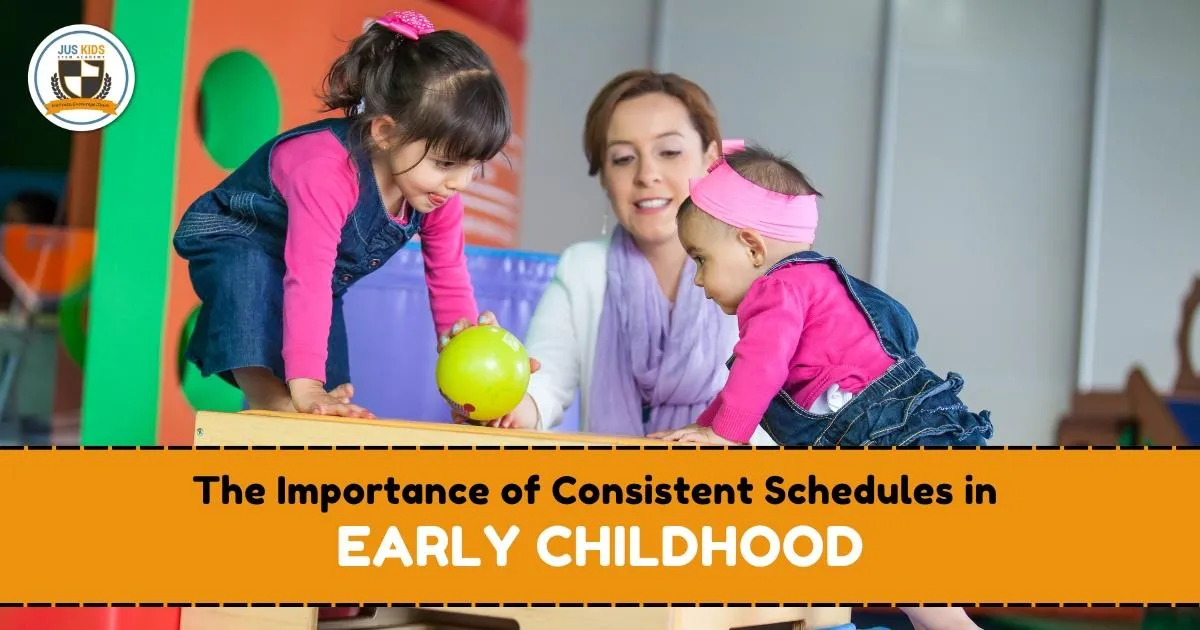
Why a Consistent Preschool Schedule Matters for Kids
“Chaos might be cute for five minutes, but structure builds thriving little humans.”
Imagine walking into a preschool classroom where kids are calm, giggling during snack time, and then smoothly transitioning into play without meltdowns. Sounds like magic? It’s not. It’s the power of a consistent preschool schedule. Now picture the opposite: a room full of little ones unsure what comes next, some anxious, others cranky, all struggling to cope with the unpredictable pace of the day. The difference? Structure.
Children thrive on predictability. When the world feels too big and too fast, routines are the anchor. Let me tell you about Mia, a spirited 3-year-old who once burst into tears every day at preschool drop-off. Her mom was heartbroken, thinking maybe school just wasn't for her. But with some time, a steady daily routine, and a gentle rhythm of transition times, structured play, and free play, Mia found her groove. Now? She's the first to run in, hug her teacher, and grab her paintbrush.
That story? It’s more common than you think. And the solution lies in one simple but powerful thing: a consistent preschool schedule.
Why Predictability Matters for Young Minds
Children don’t have the luxury of time awareness like adults do. They live in the now. So when things change suddenly or feel chaotic, it can be overwhelming. A consistent schedule gives them something to count on. It tells them, “You’re safe. You know what’s coming next.”
When kids know what to expect, whether it’s nap time, snack time, or clean-up, they’re less anxious and more engaged. That sense of stability? It fuels confidence. And confident kids learn better.
Emotional Benefits
Reduces separation anxiety
Builds emotional security
Encourages independence
Let’s face it, the preschool years are full of firsts: first group activity, first shared toy, first potty break on schedule. Without a framework, these “firsts” can feel more like “frights.”
Structure Doesn’t Mean Rigidity
There’s a myth that a schedule makes things boring. Nope. A great preschool schedule actually balances structure with flexibility. You can have free play and structured play; both are important.
Think of it like a recipe. You’ve got your ingredients (activities) and your timing (the schedule). Stir too long in one part, and things fall apart. But with the right mix, you get a smooth, flavorful day.
Structured Play vs. Free Play
Structured play teaches teamwork, patience, and following directions. Think storytime, building blocks, or music circles.
Free play fosters creativity, decision-making, and social negotiation. Letting kids choose whether to dress up as a dinosaur or build a fort gives them ownership.
The right balance between the two helps kids grow in all directions, emotionally, socially, and cognitively.
Transitions: The Secret Sauce in Preschool Time Management
Ever seen a meltdown during cleanup time? Or a toddler suddenly sprints away during circle time? Transition times are tricky. They’re the gaps between one activity and the next, and for many kids, those gaps are where the stress lives.
With a solid schedule, transitions become smoother. Singing a song before cleanup or using a visual cue (like a timer or a picture card) can help children shift gears without the tears.
Examples of Smooth Transitions
“Two more minutes of playtime, then we tidy up.”
Ring a bell before snack time begins.
Use a short song for transitions between activities.
You’re not just preventing chaos. You’re teaching time management for kids, helping them understand pacing and responsibility in ways they’ll use long after preschool.
Daily Routines Build Healthy Habits
Kids learn through repetition. That’s why daily routines aren’t just about keeping order; they shape behavior. Meal times, hand washing, potty breaks, and rest periods—all of these become habits when done consistently.
Let’s talk about meal planning. In preschools, consistent meal times don’t just avoid hangry behavior (although that’s a major bonus). They help kids tune in to their body’s natural hunger cues. They also learn about healthy food choices, table manners, and patience.
Nap time is another big one. You can’t just expect a toddler to crash on cue. But with consistent signals, dimmed lights, a quiet story, and soft music, kids begin to recognize when it’s time to rest. And a well-rested child is a happy child. Or at least less likely to throw a puzzle piece across the room.
Time Management for Kids Begins Early
Teaching time management for kids doesn’t mean giving them a planner. It means helping them understand sequences, durations, and priorities. A consistent schedule does this by offering a clear beginning, middle, and end to the day.
Over time, kids learn to anticipate what’s next, prepare for it emotionally, and eventually take part in keeping track of time themselves. That’s a huge win. Imagine your 4-year-old reminding you it’s library day—adorable and responsible.
What Happens When You Skip the Schedule?
Without structure, preschool can feel like a whirlwind. Kids get confused. They act out. Not because they’re “bad,” but because their brains are craving predictability.
Inconsistent routines can lead to:
Behavior issues
Increased anxiety
Less engagement in activities
Sleep disruptions (because if nap time is inconsistent, bedtime gets rocky too)
It’s not just hard on the kids; it’s tough on the staff and parents too. Teachers spend more time managing chaos and less time teaching. Parents may hear about tantrums or, worse, feel like their child just isn’t fitting in.
How a Schedule Supports Learning and Play
Let’s break it down. A good preschool schedule supports:
Social skills through group activities
Language skills during story time and conversation
Motor development during play
Emotional growth during transitions and rest
Cognitive development through games and interaction
You can’t force a child to learn at 9:15 on the dot. But you can create a rhythm where their brains are ready to receive. Consistency does that.
And yes, free play still plays a huge role. That’s where imagination kicks in, social roles develop, and friendships are born. But it works best when it’s framed within a larger structure that guides the day.
Just Kids Academy: A Model of Consistent Care
At Just Kids Academy, we believe structure creates freedom, not limits it. Our preschool days are thoughtfully organized to blend structured play, free play, rest, meals, and learning in a seamless rhythm. We’ve seen the difference it makes, not just in one child, but in the whole group dynamic.
Parents often tell us their children become calmer, more communicative, and even start structuring their home days based on what they experience at school. That’s not accidental. It’s the power of predictability in action.
From meal planning to transition times, we prioritize consistency. That way, your child not only enjoys their day, but also grows from it.
Building a Home Schedule that Matches Preschool
Want to support your child’s preschool routine at home? Syncing your daily routines with school doesn’t have to mean a minute-by-minute calendar.
Try These at Home
Stick to regular meal and nap times on weekends
Use songs or timers to transition between home activities.
Keep bedtime rituals the same each night
Encourage free play during the same window your child has at school.
Ask your child what their school schedule is like and mirror it loosely.
A little effort at home goes a long way in reinforcing what your child learns at preschool. And it makes mornings smoother too; no one likes a surprise sock hunt five minutes before school starts.
Final Thought
Think about your own life. Don’t you feel more grounded when your days follow some kind of rhythm? Kids are no different. They need it even more.
A consistent preschool schedule isn’t just about convenience. It’s about building trust, independence, and a foundation for learning. It makes days easier, kids happier, and parents more confident.
Want to see the impact of structured care firsthand? Schedule a tour at Just Kids Academy, where little routines build big futures.
FAQs
How do daily routines affect preschool learning?
They support memory, build habits, and reduce anxiety so kids can focus more on engaging activities and less on wondering what comes next.
What’s the role of free play in a structured schedule?
Free play lets kids explore, imagine, and socialize. Within a set schedule, it becomes a productive time that encourages independence and creativity.
How does meal planning support preschool routines?
Regular meal times teach kids about nutrition, responsibility, and listening to their bodies. It also prevents hangry tantrums and boosts focus.
Can a consistent naptime help with bedtime at home?
Absolutely. When nap times are predictable at school, it helps regulate sleep patterns, making bedtime smoother and more restful.
